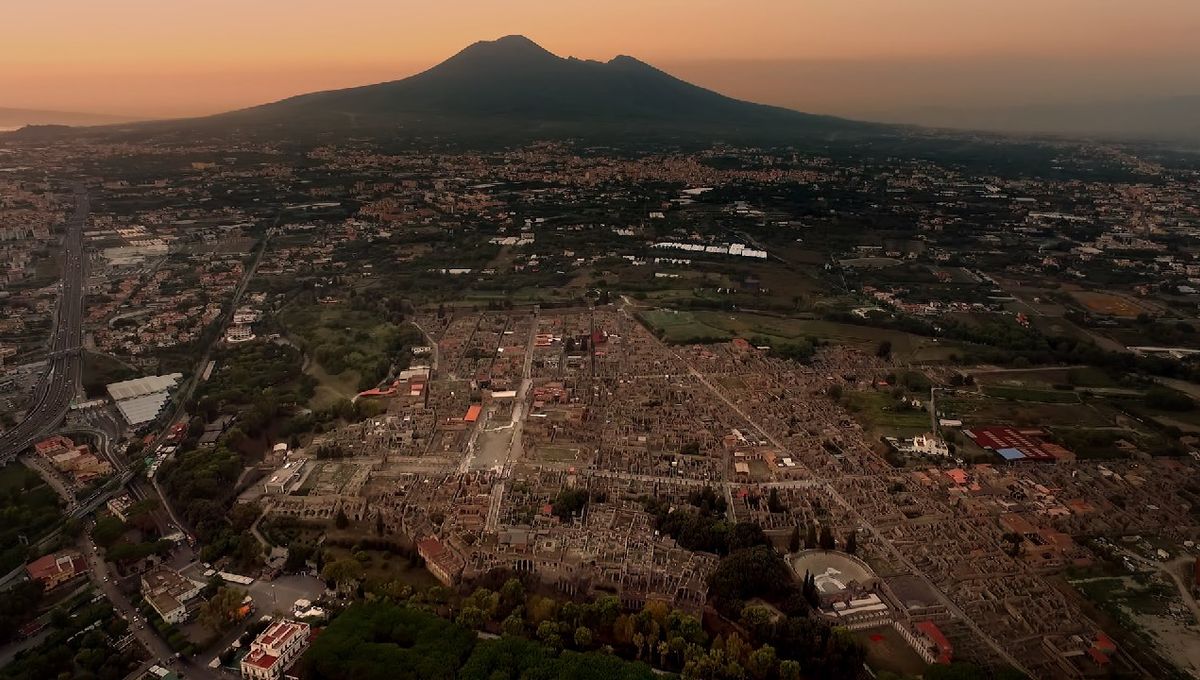
Academics and armchair archaeologists still can’t agree on the date when Pompeii was destroyed in a shower of volcanic hellfire. It was almost certainly sometime in late 79 CE, but was it August, October, or even November?
A new study by the Archaeological Park of Pompeii gently backs up the theory that the town’s destruction might have occurred on August 24 in 79 CE, a date first put forward in a letter by the lawyer Pliny the Younger that describes his experience of witnessing the historical event.
While the researchers don’t claim to definitively prove the eruption occurred on August 24, they argue that there is currently not enough evidence to disregard this longstanding claim.
To reach this conclusion, the team drew on a variety of evidence, including archaeology and reviews of literature about the event. In their view, the claim of Pliny the Younger still holds a lot of value.
“The literary tradition is clear and unambiguous. From Pliny the Younger, the date of August 24 has been handed down to us; all the others (October 24, November 1, November 23, etc.) are the result of misunderstandings, suppositions, and misinterpretations that are quite recent and perfectly traceable in the post-Renaissance bibliography. The date of October 24 is not even 100 years old,” the paper concludes.
Pliny the Younger is the only “boots on the ground” account we have of the volcanic incident, although there are some reasons to suspect he might have got the wrong date or, more likely, it has been misinterpreted by scholars.
For instance, charcoal graffiti doodled on the wall of a house at Pompeii reads “XVI K NOV,” which translates to October 17 in the modern calendar, suggesting the eruption occurred after this time. This gives credence to the idea the event occurred on October 24, often considered the most likely alternative date of destruction.
More confusion has come from the archaeological study of plants found at Pompeii. Digs have revealed the presence of both peach stones and chestnuts, the former being a symbol of summer and the latter of autumn. Since chestnuts are only harvested in autumn, though, it could suggest the eruption happened later than August, such as October 24.
The researchers indicate the debate around the day of Pompeii’s annihilation is still alive, with no piece of evidence providing enough weight to swing the argument one way or another. The physical evidence of plants, however, could be very easy to misinterpret with our modern sensibilities.
For now, maybe it’s best to trust the ancient account of the only man who witnessed the event with his own eyes and wrote down what he saw.
“We cannot at the moment exclude that the eruption occurred on August 24, as Pliny wrote, and we must ask ourselves what this could mean,” Gabriel Zuchtriegel, the director of the Pompeii excavations, said in a statement sent to IFLScience.
“Perhaps we have underestimated the literary tradition, which in reality is not as confusing as has often been believed, while we may have overestimated the stability of the climate and agricultural cycles: in reality the climate has also changed in the past, albeit at a slower pace, and Pompeii offers a unique opportunity to study an ecosystem strongly influenced by human presence already 2,000 ago,” he added.
“Biodiversity and the variety of local practices, crops, and traditions go far beyond the necessarily schematic picture offered by ancient authors who dealt with agriculture. However, ours is not intended to be a final point, but a contribution to continue the discussion and open new perspectives,” Zuchtriegel said.
The study is published in the E-Journal of the Excavations of Pompeii.
Source Link: The Ancients May Have Been Right About Pompeii's Day Of Destruction In 79 CE